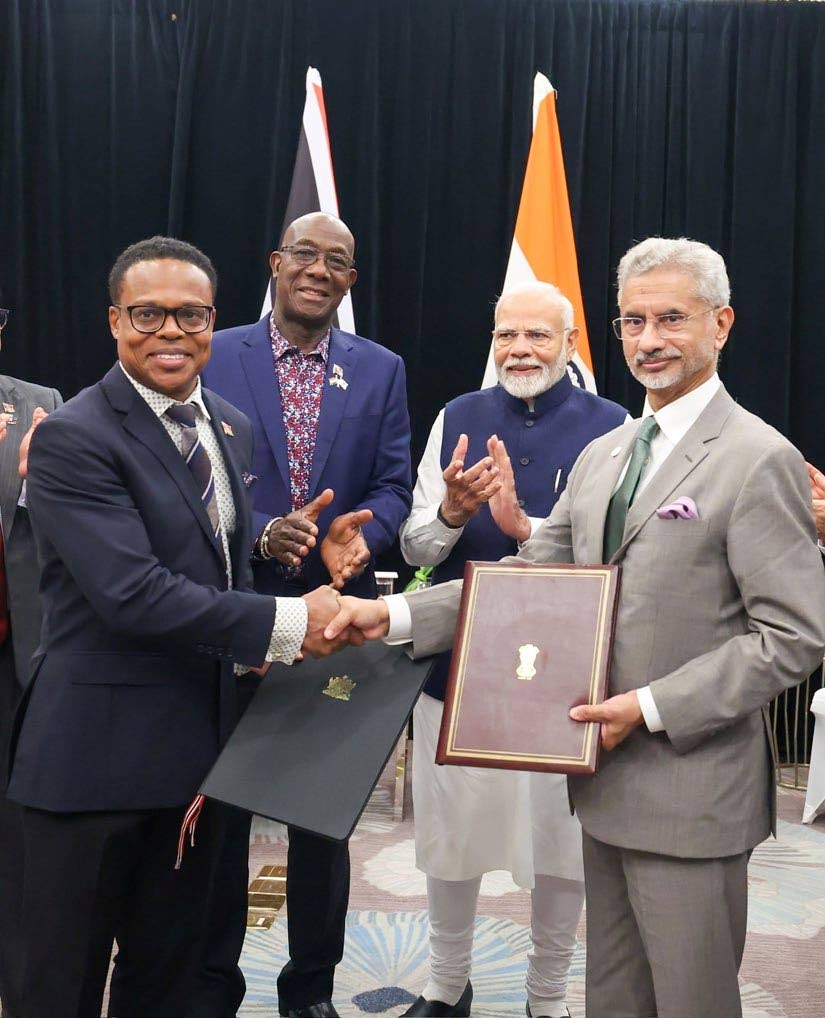A classical small wine
Written by Dara Healy on September 21, 2024

Dara E Healy
“We purposely did not paint the drums. We left them all rusty and looking like dustbin. People start to laugh. What these black men going to do with these old dustbin? When we start up everybody was shocked. They were looking to see where the music coming from…It was really nice. It was fantastic.”
– Sterling Betancourt, recalling the 1951 TASPO performance in London
SEVERAL years ago, I baulked at a classical interpretation of David Rudder’s work. I felt that it missed the point of, and possibly even tried to soften, Rudder’s lyrical content, which is typically hard-hitting, provocative and, in many ways, anti-establishment.
This week, as I listened to our National Philharmonic Orchestra interpret the works of local artists from Lord Kitchener to Farmer Nappy, Nadia Batson, and David Rudder as well, I returned to the conversation in my head.
Does the ability to interpret our music according to Western classical standards prove that our culture has merit? Or is it that by combining such diverse cultures, we are attempting to discover the synergies and connectedness that human beings share?
In 1951 there was a desire to foster unity among warring steelbands. Young men from steelbands across Trinidad were given an opportunity to be part of the Trinidad All-Steel Percussion Orchestra, the first steelband to travel and perform at the Festival of Britain. A short video of the performance shows the band set up orchestra-style, seated with the instruments on their laps between their knees, or standing behind the larger drums.
In front of them, Nathaniel Griffith, the bandmaster, is holding his conductor’s baton, taking them through various pieces from classical music to calypso. The large, mainly white crowd on London’s South Bank is mesmerised. They find it hard to believe that such sweet music could come from instruments so humble.
I often think about those young men from the 1950s. How they were judged, based on a standard that bore little relevance to their reality.
Today, there is no question about the ability of our pan to deliver exquisite renditions of all genres of music – classical, jazz, even dancehall. Yet even as the members of the Philharmonic bobbed their heads and moved their bodies to the music, I wondered.
We use the term “classical music” primarily to describe a Western European phenomenon, identified with names like Bach, Mozart and Beethoven. The music is written and the score gives specific instructions about how the piece should be performed, although there is room for interpretation. In a classical concert, “the audience and orchestra are kept in separate spaces, and the flow of activity is directed from the orchestra to the audience, which remains seated, silent and motionless.”
In community-based musical traditions, the relationship between the musicians and audience is interactive. In ancestral styles of performance or worship – for example, Baptist church, Hindu yard or Orisa palais – the participants and the musicians feed off one another. Indeed, as a native-American musician observes, in “a powwow…some singers may be better than others, but the relationships formed during the powwow supersede the music.”
It is the same in the panyard or with the soca artist on stage. As I have seen, if the crowd demands Rebecca, then Despers players, no matter how tired, have to honour their audience.
I think this is what the conversation in my head was about. To what extent are we allowing a formerly dominant culture to dictate how we teach, assess or value our traditional cultural norms? Do we recognise that our musical language comes from a different, more rooted space?
As the native-American musician points out, their cosmology is reflected in their music. Reverence of the earth, respect for elders, connectivity to ancestors – all of these are part of their musical customs. And they are part of ours. We also have our own ancient classical traditions.
Lost in my thoughts, I watched members of the orchestra dance back on stage. And just like that, a few of them stole a “lil small wine;” most unclassical-like behaviour. And the crowd loved it. I loved it too. I think that was when I relaxed.
On this International Day of Peace, as tensions globally and at home intensify, I think it is important to keep searching for the synergies in our cultures. For me, the small wine answered the voices in my head. We will be all right.
Dara E Healy is a performing artist and founder of the Indigenous Creative Arts Network – ICAN
The post A classical small wine appeared first on Trinidad and Tobago Newsday.




